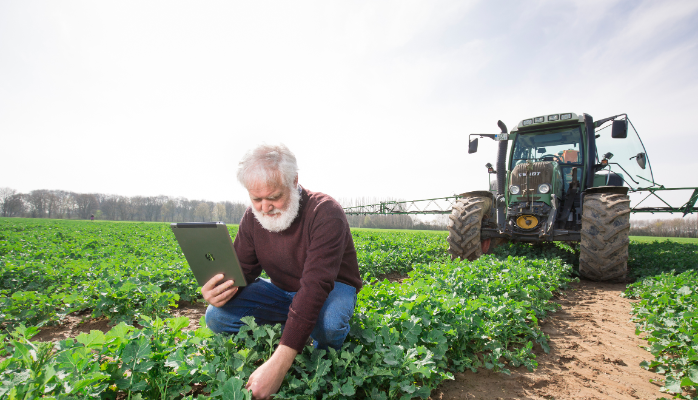It’s not often you travel to Europe for two media events back to back, but that’s what’s happening this week with BASF and Bayer holding major global programs in Germany. And while the two competitors are definitely engaging the market in their own way, one common phrase has come from both events – digital farming.
For BASF, the answer is Maglis, which is an evolving package of programs that are designed to connect farmer, dealer and BASF specialist in ways to enhance crop yields and returns. Earlier this year we shared the global introduction of Maglis from Commodity Classic. This program has several modules under development with the first – a customer navigation tool – available in the U.S.
There are more modules at work – first introduced in Canada – that will be moving to the U.S. by season 2017, including a sustainability assessment tool that will help you “read” your farm in new ways. And there’s a crop plan module as well, designed to bring together weather information, pest warnings and other tools in a data dashboard. BASF has been working on relationships with machinery companies so information you gather with equipment can be easily passed to this system (they have an agreement with John Deere, for example).
Over at Bayer, the work on digital farming continues, and already the company has initiated a range of partnerships to build a system that takes satellite images and helps farmers determine in-season issues that need to be addressed. In addition, the company is formulating ways for farmers and dealers to work together.
The Bayer system, which has yet to be publicly named, is under continued development. However, there’s one message that came out of the media event that caught my attention. Bayer is looking at a future where you may not buy “crop protection products” but instead you would buy “clean fields.”
That’s a fascinating concept of buying an outcome rather than an input. With continued refinement of on-farm data collection, and use, these are the kinds of ways companies can work with farmers for enhanced results. The scenario painted during a review of the Bayer system would be that the dealer would build a program, including a custom application schedule, that would then be put in place. And if you spray your own fields, the Bayer program would send prescriptions, and you would share machine data back to the system as part of the program.
The price of the program would be based on a clean field result, and perhaps even a yield guarantee – these are all just early ideas in a program that shows the promise of digital farming. How that plays out remains to be seen, but it’s a fascinating concept.
Call it digital farming, internet of things, big data, you name it we’re entering a different age where technology will be put to work in some fascinating ways. We’ll continue to explore those issues in upcoming blogs as these digital farming tools become available in the United States.


